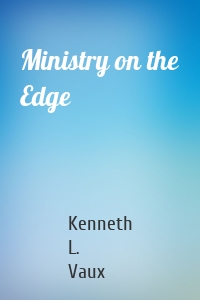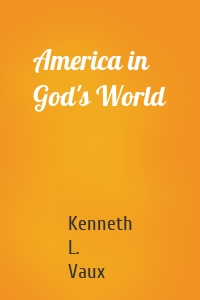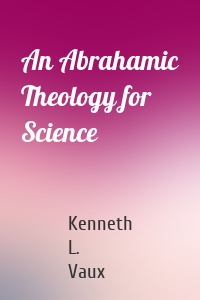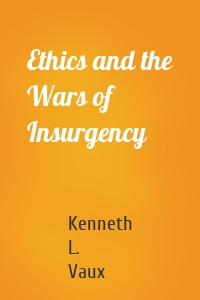Kenneth L. Vaux
8 кн.
While I Have Being
This diary is a fine-grained, often daily, theological reflection on the author's final ponderings on his ordeal with a serious illness, a concluding sabbatical, a last year of teaching, a culminating lecture, presiding at Eucharist, and summarial notes about «what God is doing in the world.» Amid all these meanderings it holds the lectionary of the biblical and liturgical calendar in one hand and the newspaper in the other (K. Barth). Events during this time span were transformative and...
| Автор | Kenneth L. Vaux |
For Such a Time as This
This third volume of Ken Vaux's memoirs covers the calendar year of 2012 which focused on (1) teaching in the Evanston church as this body struggled to be both evangelical in theology and oriented to social justice in the community. We searched together for having what it takes to be a «University Church»–preaching and teaching a credible and relevant message and living out a vital witness; seeking honest responses to issues in church and state such as homosexuality, embodying concern for...
| Автор | Kenneth L. Vaux |
Ministry on the Edge
Ministry on the Edge tells the story of Dr. Kenneth Vaux's long-standing career as theologian and minister–the first bio-ethicist, a civil rights advocate, and interfaith pioneer. Through a collection of essays, articles, and sermons, Vaux traces his prophetic assessment of important ethical issues from the perspective of theology and religion. He offers readers a deeper appreciation of the ethical implications of human and civil rights; medical and healthcare issues (such as abortion,...
| Автор | Kenneth L. Vaux |
Journey Into an Interfaith World
In this comprehensive volume, Dr. Kenneth L. Vaux explores the shared theological ground of Judaism, Christianity, and Islam-the common God, the common good, the common word, and the common work. Based on the premise that the three Abrahamic faiths are given by God for some purpose in God's universal history, Journey Into An Interfaith World traces the ways in which these faith movements flow together from and into each other in synergistic ways. At the same time, the book reveals how each...
| Автор | Kenneth L. Vaux |
America in God's World
America in God's World argues that human injustice in social-policy areas such as security, economy, and ecology can be traced to defective theology/ethics abroad in the land. Renewing biblical theology and ethics, and finding new ways to appropriate this wisdom into public policy, can bring renewal to our national life and help heal and reconcile our troubled world.
| Автор | Kenneth L. Vaux |
An Abrahamic Theology for Science
Kenneth Vaux advocates an Abrahamic theology as a dynamic and ethical axis for science and technology and argues for its continuing salience for a vital and humane science. He demonstrates a historical correlation between an Abrahamic theological tradition (monotheism and venturism) and the rise of science. Vaux illustrates these developments in the work of six scientists: Avicenna, Boyle, Schweitzer, and Teilhard, as well as contemporaries Amartya Sen and Leon Kass. In the course of his...
| Автор | Kenneth L. Vaux |
Ethics and the Wars of Insurgency
Ethics of Wars of Insurgency is my fifth study on «the ethics of war and peace.» It spans a twenty-year period of perplexing war and peace history focusing on the theological and ethical aspects of American foreign policy analysis from Somalia to Rwanda to Bosnia, concluding with present activities involving Syria–and the concurrent events of ending the wars in Iraq and Afghanistan. This study highlights the theological themes of prophecy and biblical teaching and the ethical themes of human...
| Автор | Kenneth L. Vaux |
Second Sermons
While serving as Interim Pastor in the 1993-1994 church year, Kenneth Vaux announced a year-long sermon series entitled «Intimations of the Sacred.» Building on the concepts of William Wordsworth that the simple items of nature–leaves, songs, snowflakes, and gestures of kindness–hint to us the mysteries of the divine, we assemble here a selection of these «Second Sermons,» which include themes such as Bach and Mozart, Calvin, Wesley and Ghandi, Healing and Resurrection, Reconciliation and...
| Автор | Kenneth L. Vaux |









